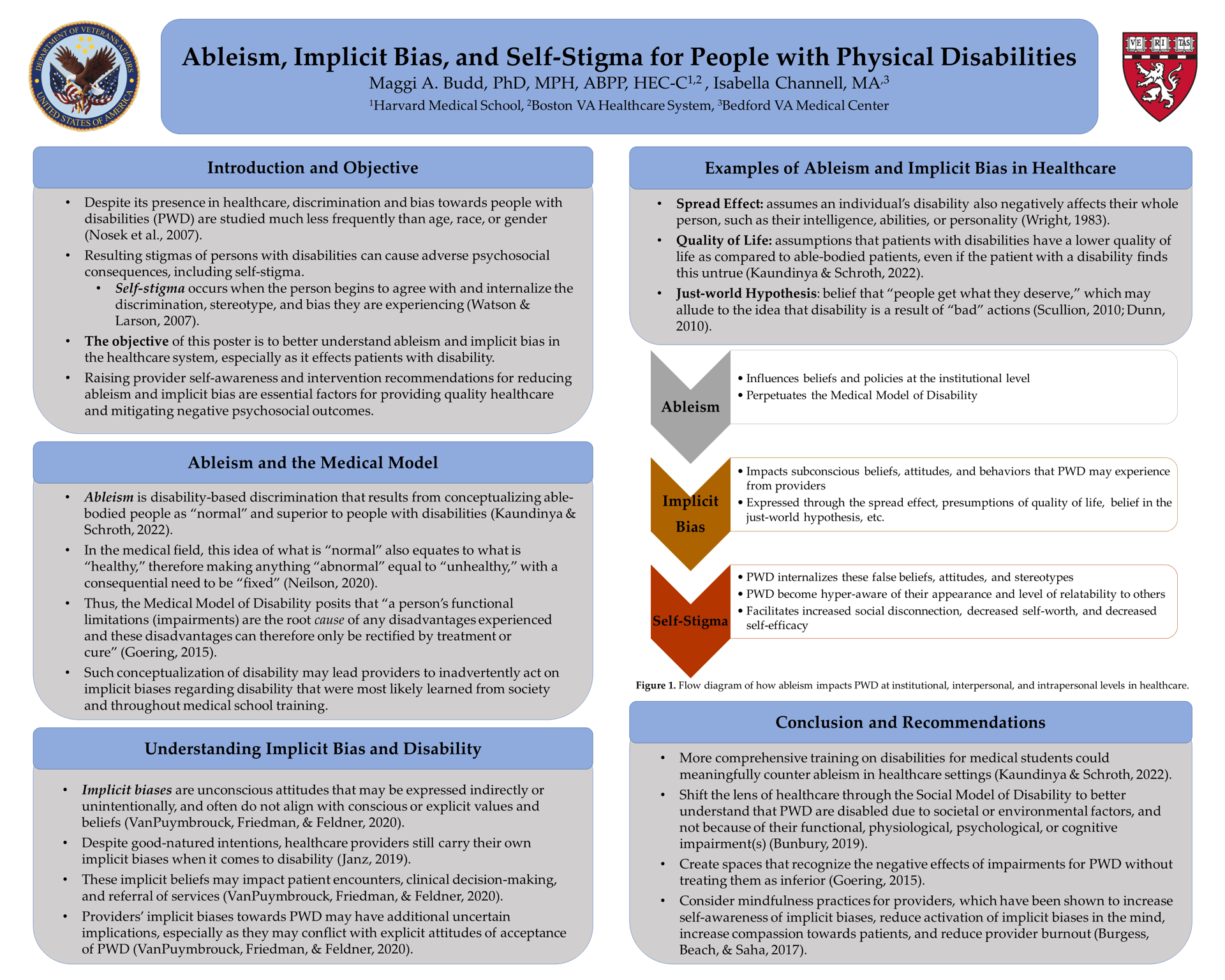Scientific Abstract
BACKGROUND: Although the definition of disability by the Americans with Disabilities Act (ADA) acknowledges that disability can be permanent or a fluctuating state, most people have automatic and fixed thoughts about people with disabilities. Ableism is disability-based discrimination that results from conceptualizing able-bodied people as “normal” and superior to people with disabilities. Ableism can take numerous forms and can be inadvertently further propagated by the Medical Model that is inherent in America’s healthcare systems. Even at the level of patient care, ableism can be unintentionally extended by well-intentioned health care providers through bias. Much conversation is had about healthcare bias for race and other minority groups, with much less discussion about bias towards people with disabilities.
METHODS: Review of ableism and implicit bias literature related to people with physical disability. Terms such as “ableism”, “implicit bias”, “self-stigma”, and “physical disability” were used in the search.
RESULTS: Based on the search terms using multiple search databases, 10 articles were deemed relevant. These articles were used to gain a better understanding the topic at hand.
CONCLUSION: Although most everyone views themselves as a nonjudgmental and moral human being, nearly everyone carries some unconscious, or implicit, bias. Biases impacts how we relate to others, influences our experiences and decisions, and affects how we live. Bias involves quick cognitive processes, which may appear intrinsic to human cognition, but are often situation specific. The Medical Model as it relates to people with disabilities may perpetuate these biases.

